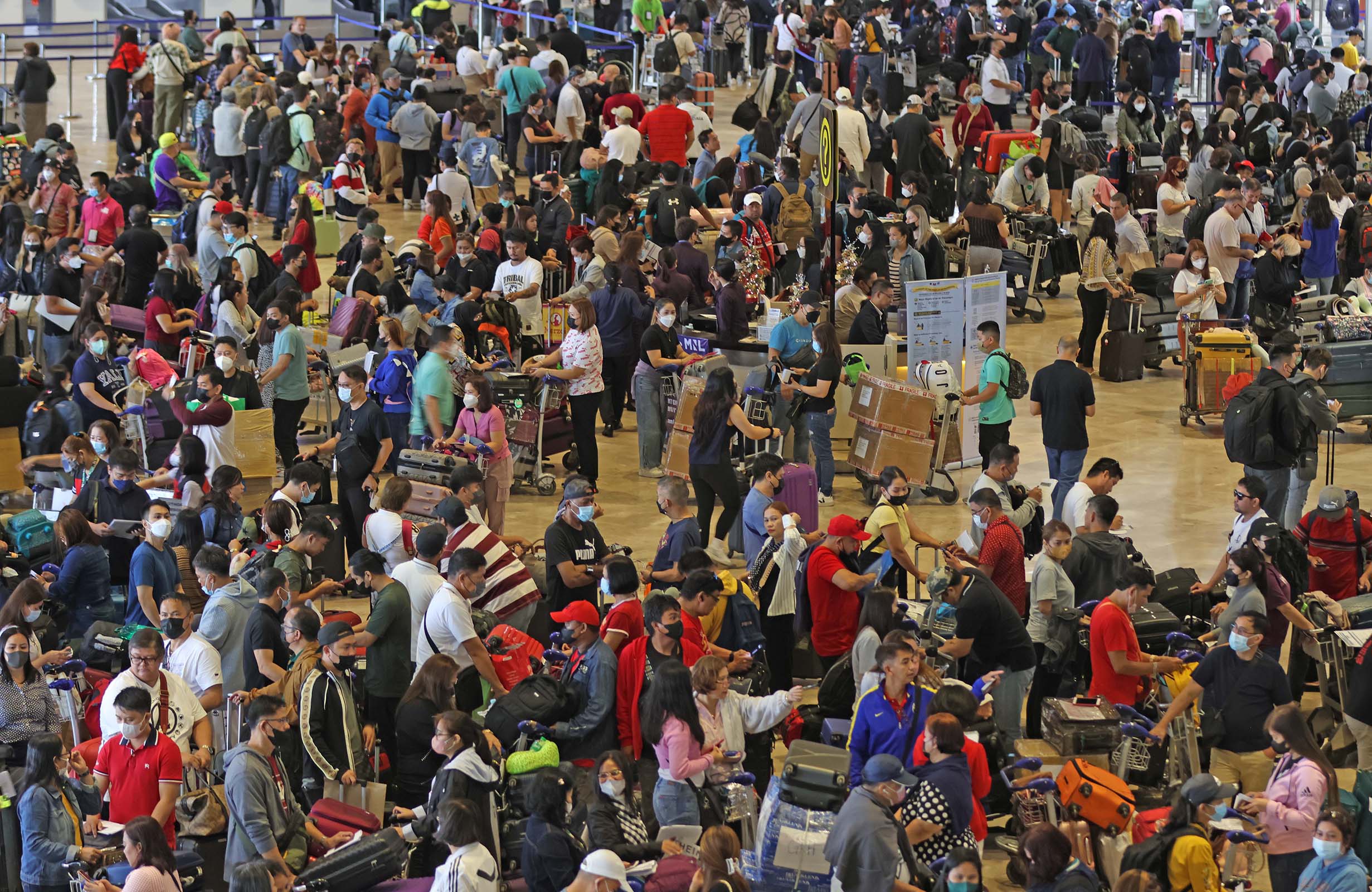
HOUSE Ways and Means Chairman Joey Sarte Salceda is asking the Civil Aviation Authority of the Philippines (CAAP) to certify the air traffic management system power issue which caused dozens of flights in the country to be cancelled as a “safety reason” for flight cancellations, to allow passengers with cancelled flights to be eligible for full reimbursement should they choose to avail themselves of the option.
“It’s the least that the DOTr and the CAAP can do, at this point,” Salceda said.
Under the DOTC-DTI Joint Administrative Order No. 1 s. 2012, “In case the air carrier cancels the flight because of force majeure, safety and/or security reasons, as certified by the Civil Aviation Authority of the Philippines, a passenger shall have the right to be reimbursed for the full value of the fare.”
Salceda said that “because this is clearly the fault of the government and not of the airlines, many passengers are unable to avail of basic compensation and accommodation packages such as free hotel rooms.”
“The JAO apparently does not have a provision for when it’s clearly the fault of the administrative agencies. So, the least the CAAP can do is certify this event as a safety reason for cancellation, so that the reimbursement mechanism can be set into motion.”
Amend Air Passenger Bill of Rights
Salceda added that this system-wide issue, “which is bad enough as it is, and terrible considering the rush to get back to work after the Holidays, should never happen again. I don’t think JAO 1 took it into account, either.”
“So, I am asking my friend Secretary Bautista to look into how the CAAP can compensate passengers hassled by these delays,” he said.
“Passengers pay a terminal fee, and airlines pay fees to the CAAP. They failed both sectors, in this case. And there’s real financial damage to both passengers and airlines as a result of this failure,” he added.
According to Salceda, there is a clear need to update or change policies to reflect what passengers are entitled to when the government is at fault.
“There’s also a need to see whether the failure could have been avoided had the CAAP complied faithfully with, say, the State Safety Program for air operations,” he said.
“But beyond these policy changes, we need to hold some people accountable, too – so this never happens again. I mean, I can’t say this is force majeure. You can foresee power outages. You can foresee surges in air traffic. Someone was at fault here,” Salceda added.
